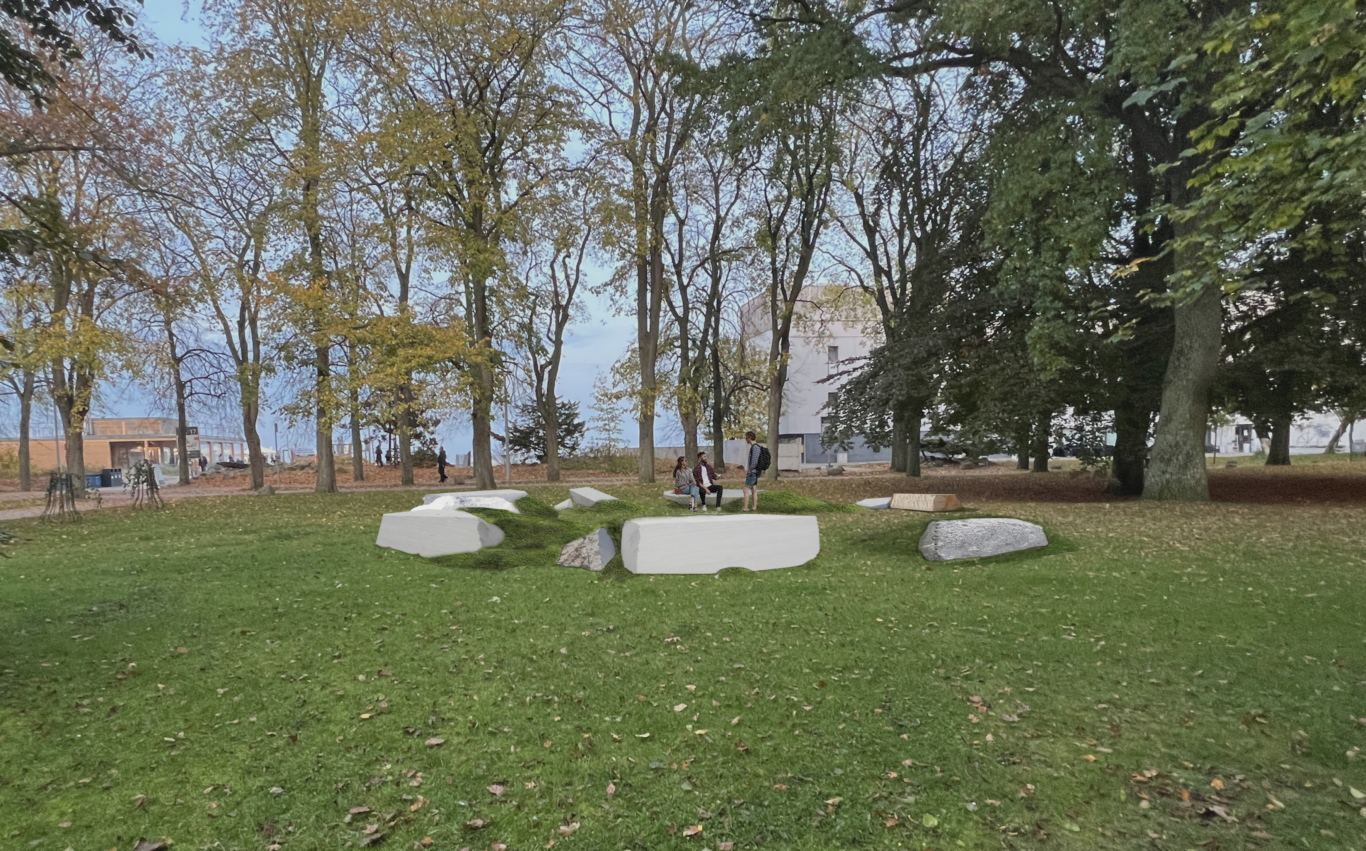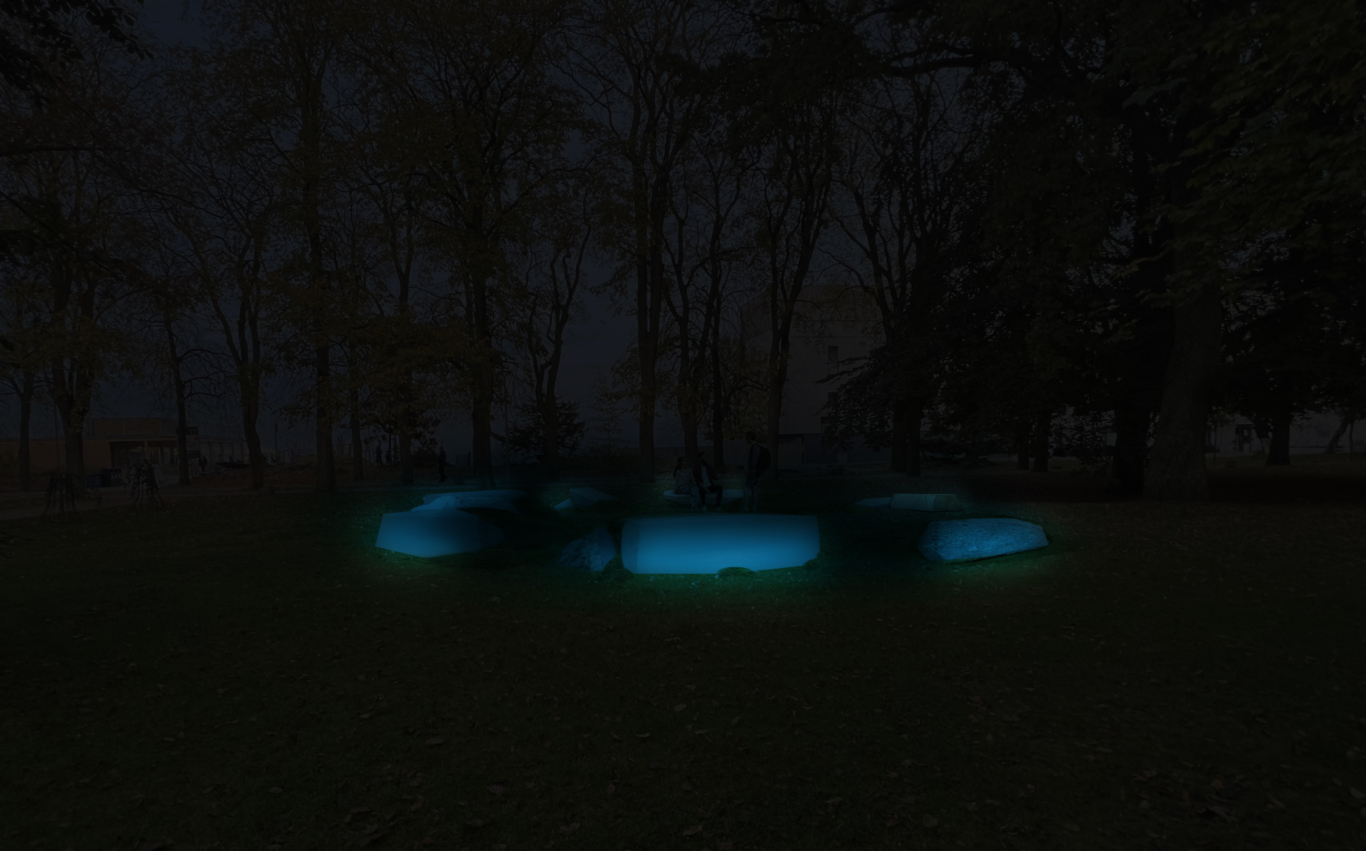ANDRIUS LABAŠAUSKAS – Głębia Landsort / The Landsort Deep
The project assumes the creation of a negative version of the bottom of the Baltic Sea – public space where locals and guests of Sopot would have a chance to sit, relax and reflect on climate issues. The objective is to make a minimalistic sculptural object using raw, long known materials and primitive techniques of work less harmful to environment.

In the dark, the sculpture is lighted using smart illumination system as an indication of current climate anomalies. If the temperature exceeds the annual average, the sculpture is lighted in the red spectrum. On cooler days, the color of light changes into the blue spectrum. If the temperature matches the annual medium, the light remains regular white. The white marble is to remind us of melting ice locked in stone and sunk into the grass as a monument to endangered glaciers.

The Landsort Deep is the deepest part of the Baltic Sea and it is located between the southeast coast of Sweden and the island of Gotland. According to scientific data, the Landsort Deep is one of the most polluted areas of the Baltic basin. The oceans and seas are the most vulnerable ecosystems to anthropogenic impacts, where heavy metals and other pollutants affect the viability of marine species. There is no answer to how to stop or even slow down the process of extreme extinction of living species connected to global climate change.
https://baltichorizons.com/wp-content/uploads/2023/04/LT-Labasauskas-Andrius-Projekt.pdf
Technique: white marble, steel, gravel, grass, flowers
Lighting – an intelligent illumination system combined with meteorological data
Suggested dimensions: about 15 x 14 m
Other: path to the object for the physically disabled, information board about the project
 Powrót
Powrót